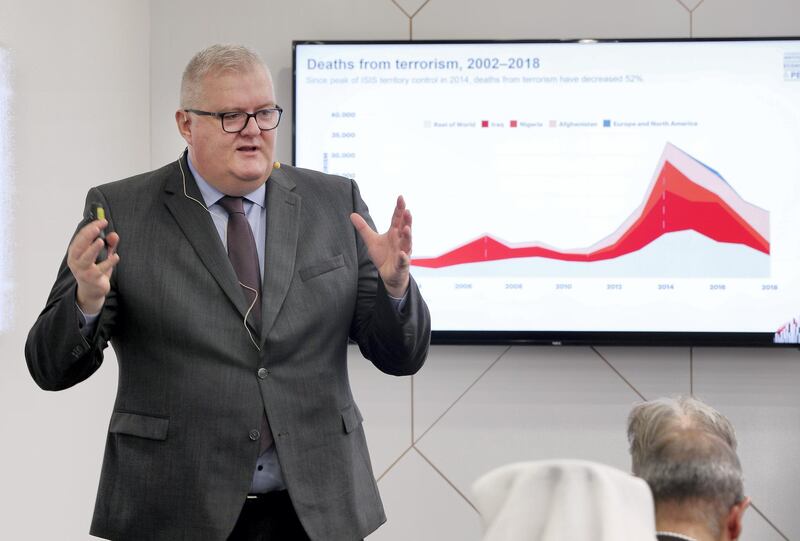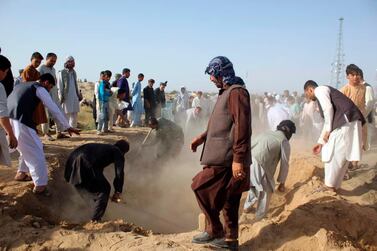Environmental activists could soon turn to violence due to what they see as a lack of action to tackle climate change, a terrorism expert said.
Serge Stroobants, an officer in the Belgian army and respected academic, said that a resurgence in eco-terrorism was one of the threats security services were braced for – as he laid out the findings of research on terrorism's effects.
The latest edition of the Global Terrorism Index, which is published every year by the Sydney-based Institute for Economics and Peace think tank, also noted a fall in deaths from terrorism in 2018 with almost 19 in every 20 fatalities taking place in the Middle East, South Asia or Africa.
There has been a growing threat from far-right extremists in the West, as well as from female terrorists, mainly by Boko Haram in Nigeria, the report said. Meanwhile, unsophisticated "lone wolf" attacks, carried out by people not affiliated to any organised group, have become more common.
Speaking about potential trends at the regional report launch in Abu Dhabi, Mr Stroobants said a rise in environmental activism may lead to violence, and warned of the risk of terrorists utilising drone technology to carry out attacks.
"We have to be very careful about windows of opportunity and weaknesses," he said. "A lot of institutions are looking at the evolution of the climate change movement."
Mr Stroobants, the director of Europe and Mena at the IEP, said the demands for radical action, as well as a lack of trust in governments and democratic institutions to enact the necessary policies, could reach a "tipping point" where some resorted to violence.
“A lot of counter-terrorism organisations are really, really keeping a close eye on this,” he said. “When you look at the urgency put into the narrative for action, linked to decreditation of the governments, you take away the potential legal and democratic potential to influence the government.
“Theoretically, this could lead to the use of some form of violence, we need to be careful of this potential evolution. We should not let violence take over in this debate.”
This month, British police said they had made a mistake it categorising the group Extinction Rebellion, which has engaged in acts of peaceful civil disobedience to raise awareness of climate change, as an "extremist" organisation.
Globally, the Terrorism Index named Afghanistan as the place most affected by terrorism, replacing Iraq, where the success of military action against ISIS was credited with a reduction in incidents, leading to it dropping into second place. Nigeria and Syria were noted as the other countries where the effects of terrorism were "very high".
In 2018, the number of deaths caused by terrorism fell by 12.5 per cent, to 7,551, the lowest since 2012.
The Taliban was named the world's deadliest terrorist group in 2018, responsible for 6,000 deaths, followed by ISIS, the Khorasan Chapter of the Islamic State that operates in Afghanistan and Asia, and Boko Haram in Nigeria. These four groups were behind 60 per cent of all deaths in 2018.
The report ranked 163 countries based on how affected they were by terrorist acts, with the UAE coming 130th. Terrorism was classed as having a "very low" impact on the country.
Mr Stroobants said that, while security agencies had become better at stopping attacks, more effort was needed to tackle the ideologies that attract people to extremism. Conflicts, too, he said, had played a major role in fuelling terrorism.
“We focus the efforts on counter terrorism on making sure nobody can press a button or pull a trigger,” he said. “But we are very, very bad at making sure that people do not develop the idea to create a device with a button or a trigger.
"We are good at taking away the capabilities, but the ideologies are still there."







